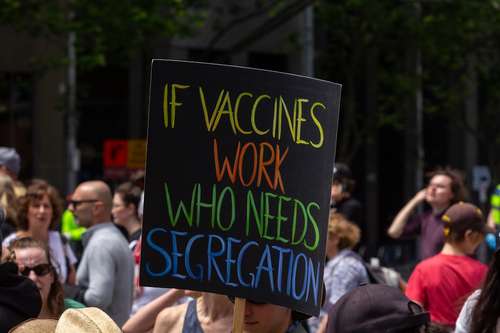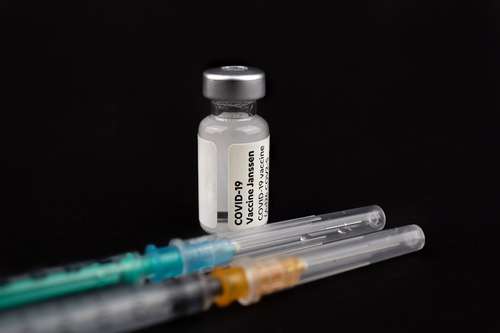This week, the spotlight is on the CDC as its panel takes another hard look at vaccine recommendations. With RFK Jr. influencing many of the debates, the discussion has turned lively about how best to address COVID-19, RSV, and other communicable diseases. The changes in guidelines are stirring conversations in public health circles and everyday chats between friends. We're all trying to figure out what this means for our immunization schedule and the safety nets we rely on.
The new review isn’t just any update—it’s a call to weigh personal choice against the common good. It’s got experts from the public health institute, the dept of health, and many more debating about how tweaks in the CDC vaccine schedule will affect individuals, especially those with compromised immune systems. The questions are burning: Do these changes signal a more flexible approach or a potential gamble with public health?
Understanding the Revised Vaccine Guidelines
The panel’s review of the vaccine guidelines comes at a time when public health is on high alert. The revised guidelines concentrate on several key areas including COVID-19 and RSV booster recommendations. It’s a mix of familiar strategies and innovative approaches aimed at keeping communities safe.
This update is not just a routine check-up of the immunization schedule—it’s a comprehensive look at how well existing protocols can combat emerging variants and seasonal surges. The CDCS have been scrutinizing data from numerous studies while considering recommendations made during consultations with experts holding MPH degrees and those working in the dept of health. This is a moment where science meets policy in a way that feels like a crucial puzzle piece has just been found.
There is also a significant focus on balancing the historical approach with fresh insights. While the CDC has long been known for its structured vaccine recommendations, the panel’s review under RFK Jr. is challenging aspects of the immunization schedule that may need recalibration. The idea here is simple: ensuring that every person, regardless of health background, benefits from robust public health measures.
Implications for Public Health and Immunization Schedules
Let’s unpack what these changes mean for public health. At the heart of the discussion is the need to maintain immunity levels in the population, especially as seasonal threats loom and new variants arise. The refined guidelines are designed to offer clarity on when and how booster shots should be administered, balancing immediate needs with long-term public health goals.
One of the thought-provoking aspects of this review is its impact on those who rely on a precise immunization schedule. Imagine your yearly routine suddenly getting a new twist—this is the reality many will face as the CDCS try to sync up science with real-world challenges. There’s an underlying expectation that the changes might lead to more personalized vaccine plans, tailoring recommendations to individual risk factors. This has led to debates about whether it’s better to have a one-size-fits-all approach or adopt more flexible strategies based on demographic data.
The revised guidelines also have undeniable ripple effects on public health practice. For instance, a new approach to timing for COVID-19 boosters might be a game changer for those working in the field of communicable diseases. Many are watching closely because even small modifications can influence the overall resilience of our community. In many ways, this update feels like an evolution rather than a revolution—fine-tuning old structures to adapt to a new era.
Balancing Personal Choices and Community Benefits
This section dives into a hot-button issue: the balance between personal health choices and community benefits. Everyone knows that vaccination is not just about individual protection; it’s a collective shield! As RFK Jr. becomes a more prominent voice, the discussion now turns to how personal decisions affect the broader public health landscape.
Every individual has unique health circumstances, and choices can vary widely from one person to another. For many, the idea of personalized vaccine plans resonates deeply. You might think of it like choosing the right fit for your shoes—one size may not always be perfect for everyone. This perspective is increasingly important in discussions about the antigens and evolution of diseases, where timing and dosage play a critical role.
The conversation is also filled with energy and passion; after all, public health is a shared responsibility. Some experts argue that a safer, more resilient society can only be achieved when we support people making informed choices. Others stress that without consistent guidelines, any gains in communal immunity could be put at risk. It’s a complex dance between autonomy and a common good that keeps the debate lively and urgent!
Some public health experts have noted that this isn’t just about the physical aspects of immunization but also about trust in authorities like the CDC. The dept of health and other institutions stand at the forefront of these discussions, emphasizing that clear and consistent policies help maintain community health. When guidelines change, it’s like resetting a clock—a necessary action to stay in sync with evolving challenges while ensuring everyone is moving forward together.
The Road Ahead: What It Means for You
Understanding these key changes isn’t just about decoding policy jargon—it’s about how these decisions affect everyday lives. The CDC panel, under the renewed energy from RFK Jr., is clearly focused on creating a safer future where vaccination isn’t just a mandate but a well-thought-out pathway to long-term health security for all.
Imagine planning a road trip: you wouldn’t depart without checking the weather, fuel, and car condition. Similarly, the updated vaccine guidelines are about making sure every step is measured and safe. Whether you’re keeping up with the CDC vaccine schedule for yourself or helping to decide for loved ones, these changes might offer a more customized, flexible approach that aligns closely with current public health needs.
As discussions continue in boardrooms and community centers alike, we can see that every expert from the department of health to those at public health institutes is looking at how evidence-based medicine can best serve us. The conversation isn’t over; it’s evolving, much like the viruses we aim to protect ourselves against. And if you have questions—don’t hesitate to seek advice from a reliable source, be it your physician or local health department.
In the end, the revised guidelines are a reminder that while the road to optimal public health is sometimes bumpy, cooperative efforts can steer us toward a more secure future. From rethinking the immunization schedule to embracing the nuances of personalized care, this moment in time may very well set the stage for better responses to both current and future health challenges.
Stay informed, ask questions, and remember that every change in policy is a step toward protecting not just individual well-being, but the health of the whole community!




